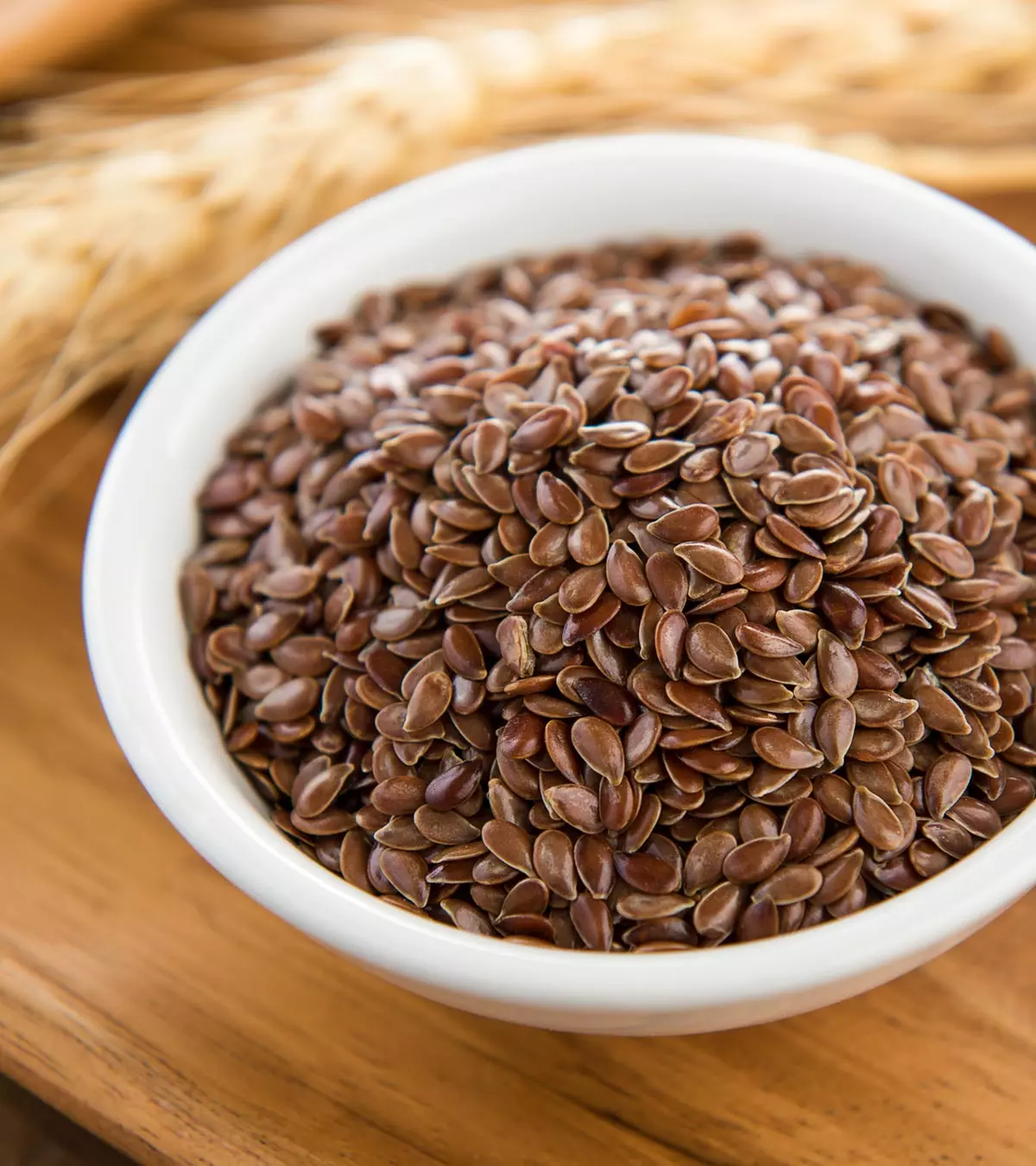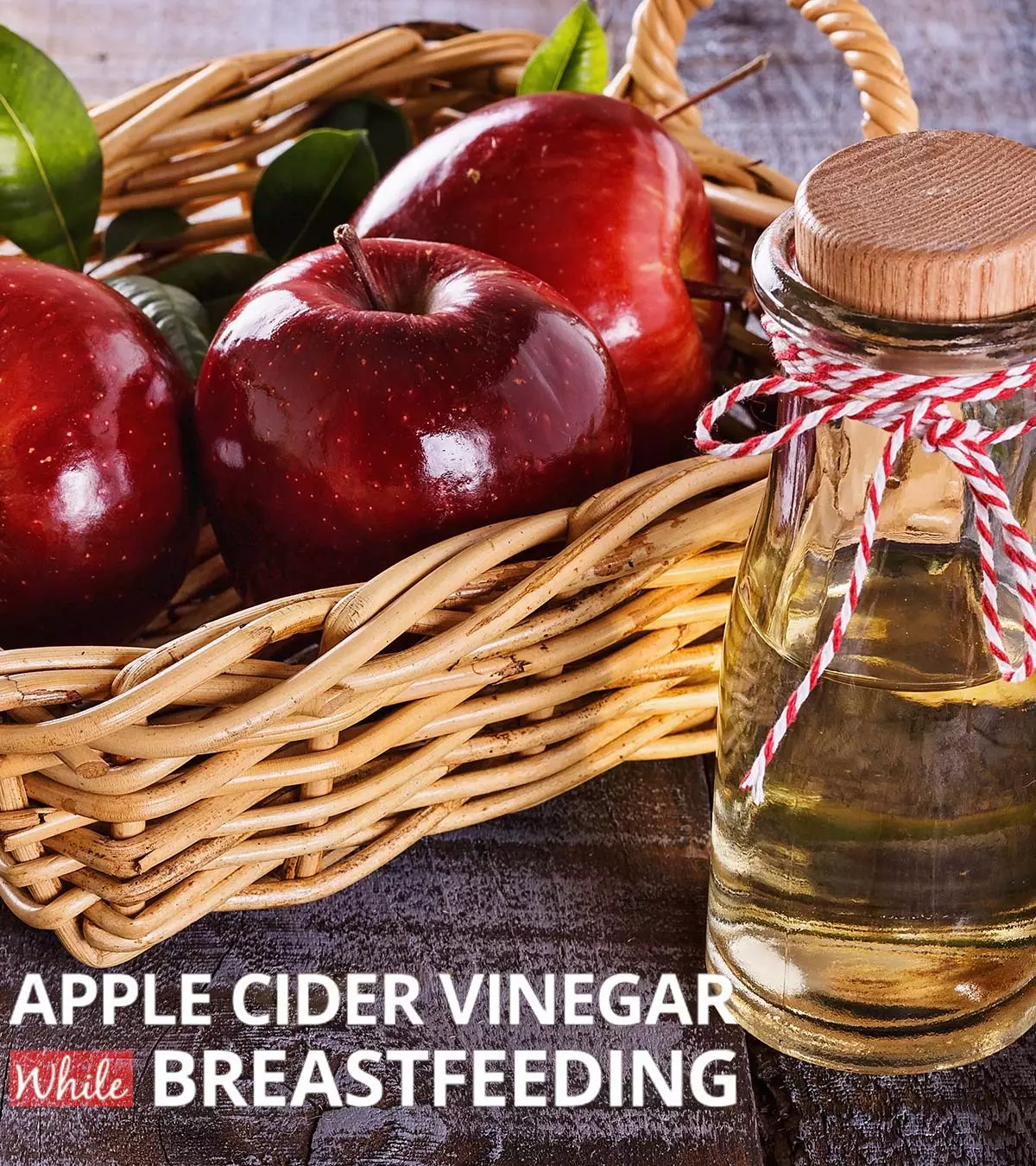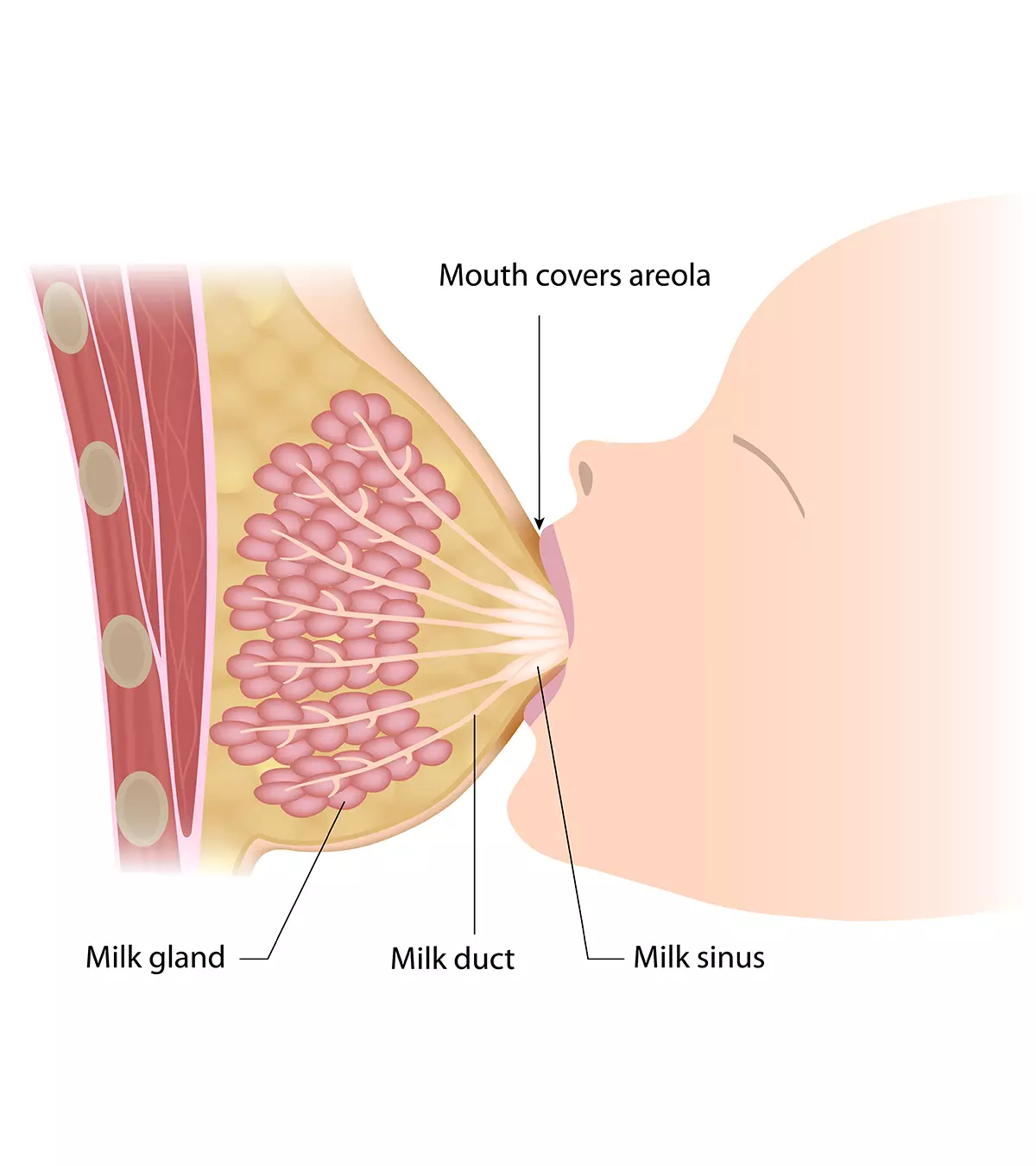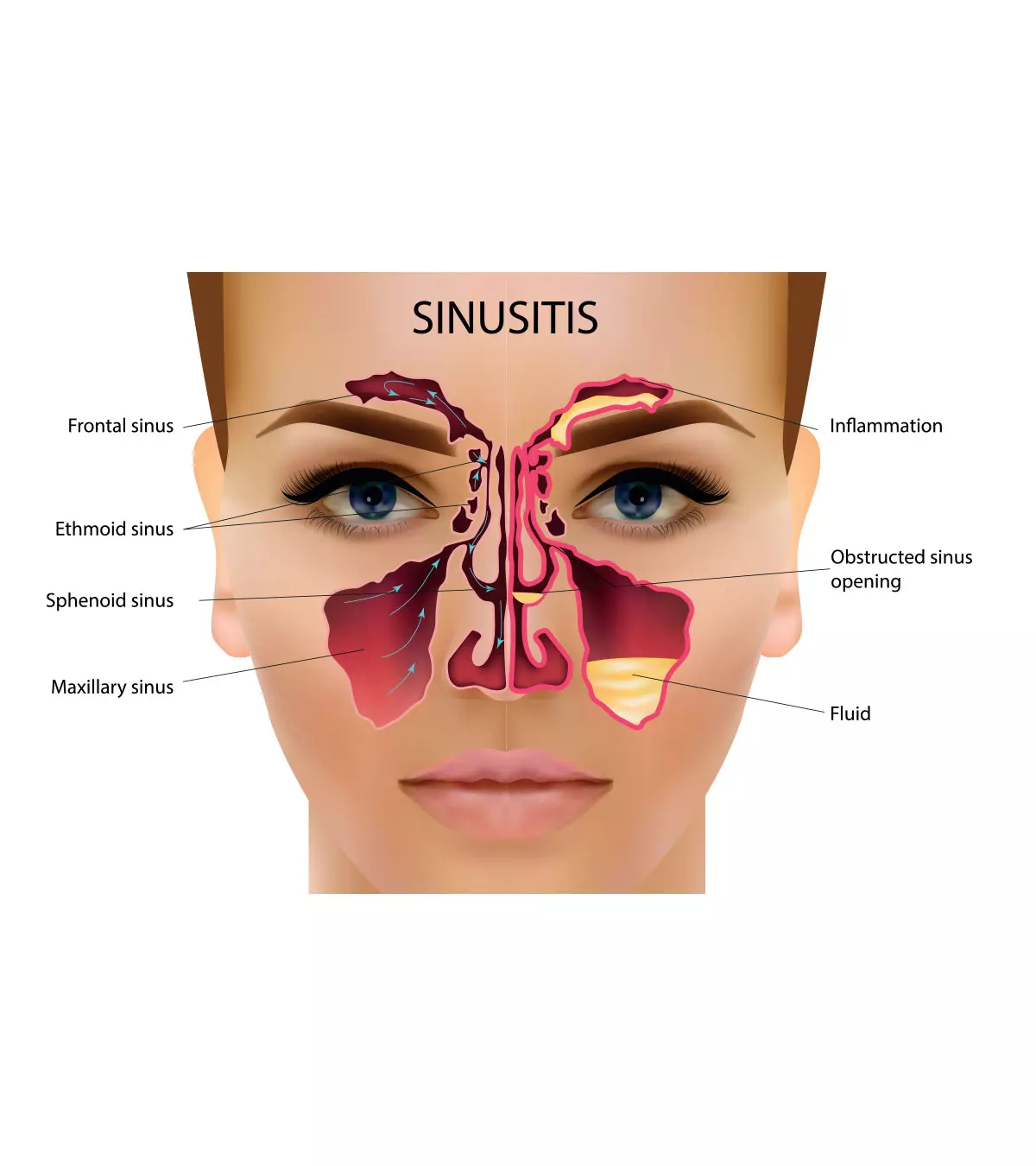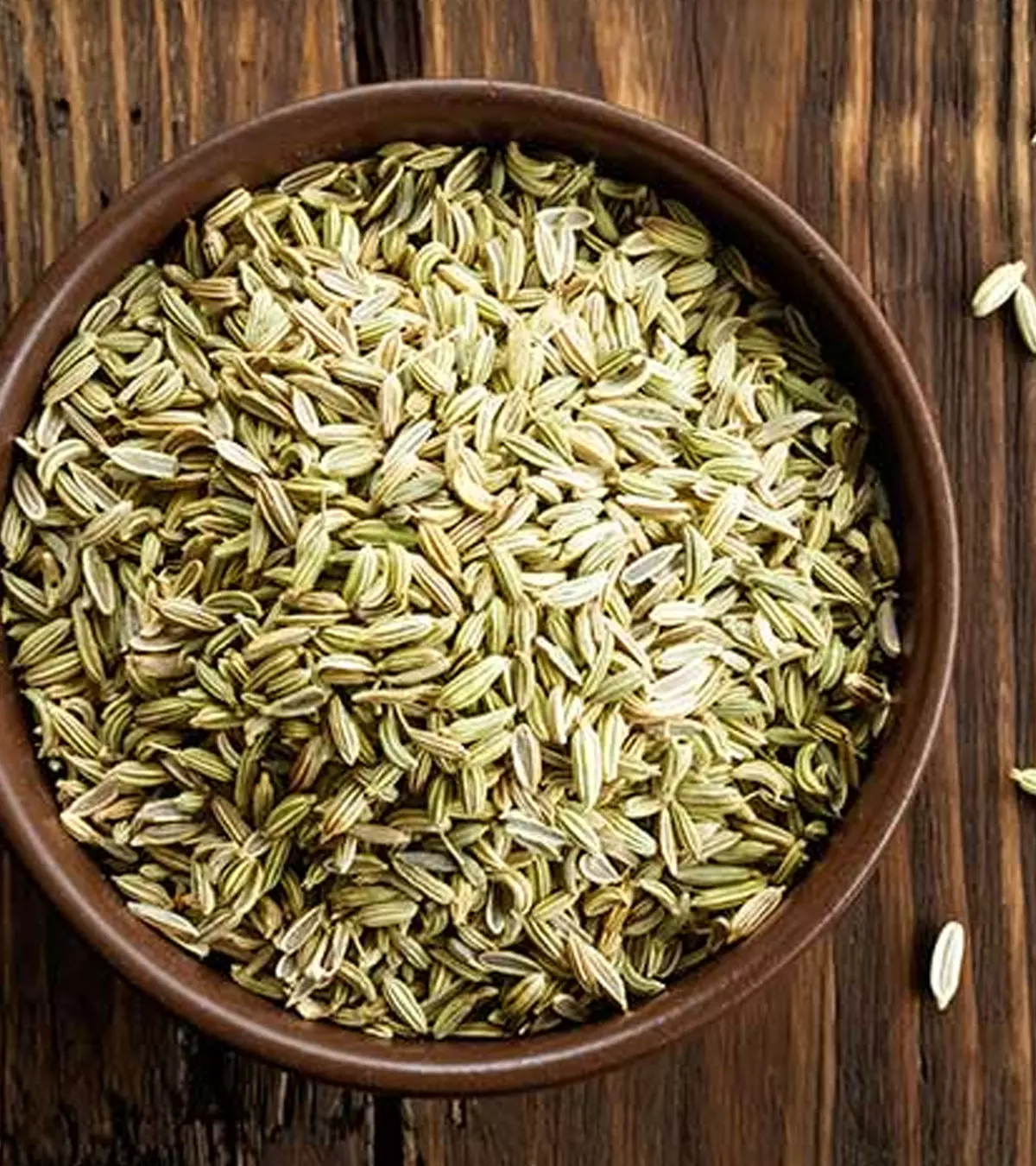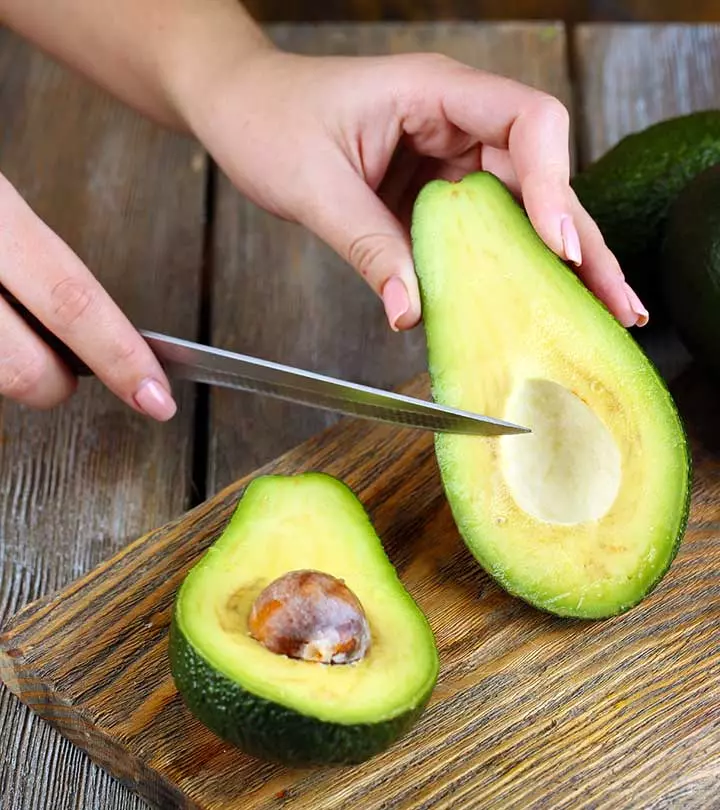
Image: ShutterStock

In the past few years, avocados have gained a lot of popularity as a superfood. Nursing mothers may always look for ideas to add nutrition-rich food to their diet. In addition, they may want to know if it would be a good idea to consume avocados while breastfeeding. They have a distinct taste and a nice creamy texture that many lactating women enjoy. Read this post to know more about the nutritional value of avocados. We also tell you it is safe to consume them while breastfeeding and the possible health benefits of eating avocados while nursing your baby.
Key Pointers
- Eating avocados while breastfeeding is recommended by many doctors due to its benefits.
- Avocados are rich in healthy fats and fiber, aiding in the absorption of fat-soluble vitamins and promoting digestion.
- Avocados contain DHA, an omega-3 fatty acid, and folic acid, which aid in brain and nervous system development.
- Consuming avocados can improve the nursing mother’s oral hygiene, weight regulation, liver, and joint health.
- Additionally, avocados help the mother feel fuller for longer periods and provide anti-inflammatory benefits.
What Are Avocados?
Avocados, also known as “Alligator Pears,” are wonderful, nutritious fruits that grow on an evergreen tree called Persea Americana, which belongs to the Lauraceae family
. The fruit’s skin possesses a leathery appearance, and it’s native to Puebla, Mexico. Each avocado weighs between eight ounces and three pounds. The fruit is widely popular for its unique taste, appearance, and many individuals include it in their snacks for numerous health benefits (1).
Is Eating Avocados Safe While Breastfeeding?

Image: Shutterstock
Yes, you can include avocados in your diet for optimal postpartum nutrition., especially when you are nursing a newborn round the clock. In fact, several doctors and lactation consultants recommend adding this fruit to your breakfast or snacks while breastfeeding since it offers several infant and maternal health benefits. It may positively impact the growth and development of your newborn. So, make sure you eat the nutritious fruit in appropriate quantities while nursing your baby (2).
 Point to consider
Point to considerHealth Benefits Of Eating Avocados While Breastfeeding
Avocados offer you and your newborn several health benefits during lactation. Here, we list some important health benefits of eating avocados while nursing.
1. Helps neurological development of newborn
Avocados contain high amounts of healthy fats, such as monounsaturated fats, which are healthy, particularly for newborns. Consuming the fruit provides your baby with healthy fat which helps absorb fat-soluble vitamins, such as vitamins K, A, E, and D, during digestion. These vitamins promote your baby’s growth and neurological development. DHA is an omega-3 fatty acid present in avocados that promotes your baby’s brain growth and improves her visual functioning. Avocados are also a great source of minerals, including magnesium and potassium, which benefit the baby’s health (1). Moreover, the folic acid content in avocados helps boost your baby’s growth and brain and nervous system development.
2. Promotes digestion
Avocados provide about 40% of the daily dietary fiber requirement per serving. Soluble and insoluble fibers in the nutritious fruit promote smooth digestion while you are nursing your baby. Also, consumption of avocados prevents stomach upset, indigestion, and constipation while breastfeeding.
3. Helps with dental care

Image: Shutterstock
Eating avocados also prevents bad breath (halitosis). Flavonoids and antibacterial properties of the fruit kill the bacteria in your mouth effectively and promote good oral hygiene while breastfeeding. Also, consumption of avocados prevents the risk of development of oral cancer.
4. Promotes liver health
Avocados help to keep the liver healthy. Organic compounds in the fruit help promote your liver health substantially while you are nursing your baby.
5. Supports weight management
Incorporating avocados into your breastfeeding diet can significantly improve your overall nourishment and aid in weight regulation. The fruit prevents you from gaining too much weight during the postpartum period and helps you stay fit and active.
 Point to consider
Point to consider6. Treats arthritis
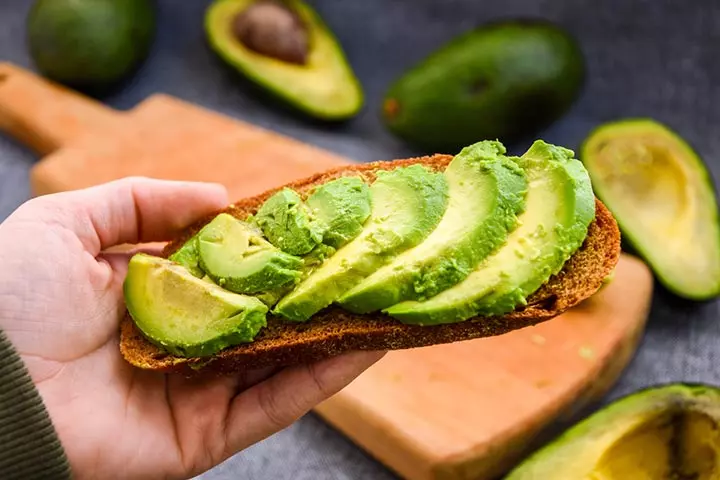
Image: Shutterstock
Anti-inflammatory benefits of avocados prevent inflammation and pain of tissues, muscles, joints while breastfeeding. A high amount of flavonoids, carotenoids, phytochemicals, and phytosterols in the fruit make it an excellent anti-arthritic, pain and joint swelling (arthritis).
Frequently Asked Questions
1. Does avocado cause gas?
Avocados are high in polyols, which is a type of sugar alcohol. An excessive intake of avocados may cause bloating in individuals with irritable bowel syndrome (3).
2. Does avocado increase milk supply?
There are not sufficient studies stating if avocados increase the milk supply. However, a study published in the National Library of Medicine stated that the good fat content of avocados might improve breast milk quality (4).
3. Can eating avocados affect the taste of breast milk?
There is no direct evidence to suggest that eating avocados can affect the taste of breast milk. Yet, a mother’s fruit and vegetable consumption can affect the flavors in breast milk, shaping infants’ food preferences. Avocados have good fats and vitamins, making them nutritious for breastfeeding moms (4).
4. Are there any potential allergies associated with avocados and breastfeeding?
Yes, there is a possibility of allergies linked to avocados. A study revealed that specific proteins in avocados could trigger allergic responses in individuals with a previous latex-fruit allergy. Although digestion breaks down these proteins partially, reactions can still occur (5).
5. What are some alternative sources of healthy fats for breastfeeding mothers aside from avocados?
In addition to avocados, breastfeeding moms can get healthy fats from foods such as nuts and seeds (like almonds and cashews), olive oil, olives, vegetable oils ( sunflower and safflower), and peanut butter (6).
6. Can avocados help with breastfeeding-related fatigue?
While avocados are a nutritious food and can contribute to overall well-being, there is no direct evidence to suggest that they specifically help with breastfeeding-related fatigue. A balanced diet and proper rest are important for managing fatigue during breastfeeding.
Did you enjoy eating avocados while nursing your dear little one? How did you benefit from it? Fellow moms would love to hear your side of the story. So, leave us a comment in the section below.
Infographic: Benefits Of Eating Avocados During Breastfeeding
Avocados are a nutritional powerhouse for nursing mothers. They are rich in healthy fats and provide immense benefits to you and your baby. Have a look at this infographic as we share some benefits of including this superfood in your nursing diet.
Some thing wrong with infographic shortcode. please verify shortcode syntaxIllustration: Can You Eat Avocado While Breastfeeding?

Image: Dalle E/MomJunction Design Team
References
- In Case You Need a Reason to Eat More Avocado.
https://www.cedars-sinai.org/blog/healthy-and-delicious-avocado.html - Breastfeeding and your diet.
https://www.betterhealth.vic.gov.au/health/healthyliving/breastfeeding-and-your-diet - Anamaria Cozma-Petruţ et al; (2017); Diet in irritable bowel syndrome: What to recommend not what to forbid to patients!; US National Library of Medicine
https://www.ncbi.nlm.nih.gov/pmc/articles/PMC5467063/ - Kevin B. Comerford et al; The Role of Avocados in Maternal Diets during the Periconceptional Period Pregnancy and Lactation
https://www.ncbi.nlm.nih.gov/pmc/articles/PMC4882725/ - Araceli Díaz-Perales et al; Analysis of avocado allergen (Prs a 1) IgE-binding peptides generated by simulated gastric fluid digestion; The Journal of Allergy and Clinical Immunology
https://pubmed.ncbi.nlm.nih.gov/14610495/ - Session 2: Fats – Saturated, Unsaturated, and Trans Fat.
https://stacks.cdc.gov/view/cdc/146588/cdc_146588_DS1.pdf”
Community Experiences
Join the conversation and become a part of our nurturing community! Share your stories, experiences, and insights to connect with fellow parents.
Read full bio of Dr. Jessica Madden
Read full bio of Jessica Albert
Read full bio of Rohit Garoo
Read full bio of Anindita Ghatak









